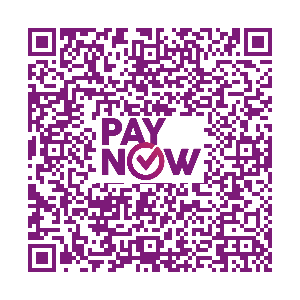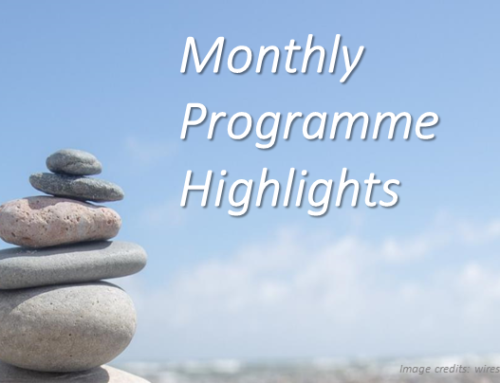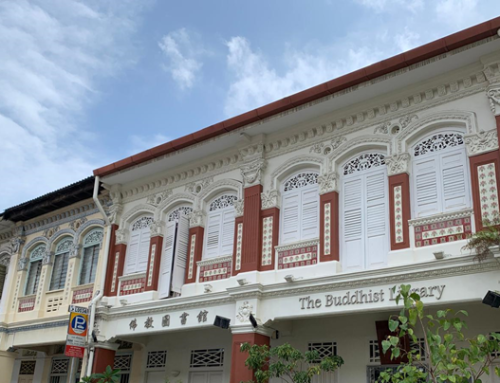Dates: Saturdays from 12 Jul to 18 Oct (12 lessons, see below for exact dates)
Time: 2.30pm – 4.30pm
Venue: The Buddhist Library
Registration: Click here
About this Program
“In the book “Who Is My Self” by Ayya Khema, three conditions were listed for the practice of meditation to bear fruit: Firstly, to know our own dukkha, to recognise where it comes from, and how it operates in our lives; the second is to gain confidence in the Buddha’s teaching and to realize that we can take this path; and the third is to experience joy at the opportunity we have been given.”
The Meditation and Dhamma class is a recurring programme at the Buddhist Library and is one of its more popular programmes in recent years. This July’s run of the class comprises 12 lessons, and during each lesson the Class Mentors will lead meditation sessions as well as run through specific teachings of the Buddha. Time is also allocated for Q&A.
In this run, the class mentors will be revising Right Action, with a focus on Abstinence from Taking What is Not Given; Right Livelihood, and Morality.
Who is this Program For?
- Those who have been attending previous runs of the class
- Persons looking to strengthen their understanding of Buddhism and their practice
- New practitioners who have no knowledge of Buddhism or meditation, but have a keenness to learn
What are the Topics?
Right Action: Abstinence from Taking What is Not Given
- What is included in the definition of stealing (taking what is not given?)
- If someone with kleptomania (impulse control disorder) commits theft, is it considered stealing?
- If someone steals something and gives it to me, have I broken my precept of not taking what is not given?
- What are the kammic repercussions for stealing?
Right Livelihood
- The Buddha specified five kinds of livelihood (i.e. trading in weapons, living beings, meat, intoxicants & poisons) that we have to avoid because they bring harm to ourselves and others. Does it mean that we are engaging in Right Livelihood if we have professions other than these five?
- As a Buddhist practitioner, is it wrong to strive for wealth? What is the Buddha’s attitude towards poverty and wealth?
- The Buddha taught Righteous and Balanced Living. What does that involve?
- Did the Buddha show us how we can manage our finances?
- What is the role of Right Livelihood in our mental cultivation?
Morality
- There are various themes on Morality in the Pāli Canon, e.g. Five Precepts, Ten Wholesome Courses of Actions. How are these different forms of training connected to one another?
- Why are the standard definitions on Right Speech, Right Action and Right Livelihood concerned only with abstinence from unskillful actions? And why does “avoiding evil” always come before “doing good” in the Buddha’s teachings?
- Why does our Dhamma practice start with Morality? Why is Morality (virtue) needed for insight wisdom?
- If we observe the moral rules of conduct, what can we expect in kammic returns, not just in this life, but also in our rebirth destination & subsequent lives (in addition to what we learnt in Right Speech, Right Action and Right Livelihood)? And what happens if we break the precepts and rules of conduct?
About the Class Mentors
The Meditation and Dhamma class mentors are Sis Foo Siew Fong (bio here), Sis Foo Siew Ee (bio here), Sis Tan Sock Hoon and Bro Tan Chau Yee (bio here).
The Saturday Meditation and Dhamma class mentors aim to help fulfil the conditions described by Ayya Khema (as mentioned at the onset of this webpage). And they do it by sharing the strength and beauty of the Buddha’s teachings in a simple, clear and digestible way, practising various meditation techniques as taught by the Buddha, and providing practical applications for everyday life.
Through these weekly sessions, they hope to inspire in all participants an abiding curiosity, interest, and determination to explore the Dhamma and live life according to the Buddha’s teachings.
Dates and Indication of Attendance
12 Saturdays
- Jul 12, 19, 26
- Aug 2, 16, 23, 30
- Sep 6, 27
- Oct 4, 11, 18
Registration: please indicate your attendance here.
Donations
This programme is freely offered. To recoup the costs involved in running the Library and its programmes, do consider making a donation. The most expedient way to make a donation is by PayNow to UEN S81SS0026HBRS or scan below; do include the text “donation” in the Reference field. For other ways to donate, please see here.







